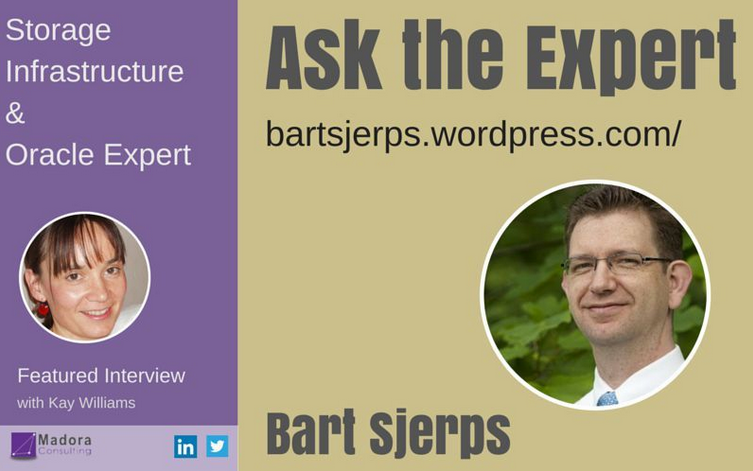 Infrastructure has always been a tough place to compete in. Unlike applications, databases or middleware, infrastructure components are fairly easy to replace with another make and model, and thus the vendors try to show off their product as better than the one from the competition.
Infrastructure has always been a tough place to compete in. Unlike applications, databases or middleware, infrastructure components are fairly easy to replace with another make and model, and thus the vendors try to show off their product as better than the one from the competition.
In case of storage subsystems, the important metrics has always been performance related and IOPS (I/O operations per second) in particular.
I remember a period when competitors of our high-end arrays (EMC Symmetrix, these days usually just called EMC VMAX) tried to artificially boost their benchmark numbers by limiting the data access pattern to only a few megabytes per front-end IO port. This caused their array to handle all I/O in the small memory buffer cache of each I/O port – and none of the I/O’s would really be handled by either central cache memory or backend disks. This way they could boost their IOPS numbers much higher than ours. Of course no real world application would ever only store a few megabytes of data so the numbers were pure bogus – but marketing wise it was an interesting move to say the least.
With the introduction of the first Sun based Exadata (the Exadata V2) late 2009, Oracle also jumped on the IOPS race and claimed a staggering one million IOPS. Awesome! So the gold standard was now 1 million IOPS, and the other players had to play along with the “mine’s bigger than yours” vendor contest.
(more…)
![]()

 The idea is that many database servers are suffering from IO wait – which actually means that the processors are waiting for data to be transferred to or from storage – and in the meantime, no useful work can be done. Given the expensive licenses that are needed for running commercial database software, usually licensed per CPU core, this then leads to loss of efficiency.
The idea is that many database servers are suffering from IO wait – which actually means that the processors are waiting for data to be transferred to or from storage – and in the meantime, no useful work can be done. Given the expensive licenses that are needed for running commercial database software, usually licensed per CPU core, this then leads to loss of efficiency. Given that the number of page views on Dirty Cache passed a quarter million last year (thanks to all my readers), can you imagine the savings in bandwidth and productivity loss by not showing ads? 😉
Given that the number of page views on Dirty Cache passed a quarter million last year (thanks to all my readers), can you imagine the savings in bandwidth and productivity loss by not showing ads? 😉 A while ago Kevin Closson announced a new release of the well-known SLOB kit.
A while ago Kevin Closson announced a new release of the well-known SLOB kit.